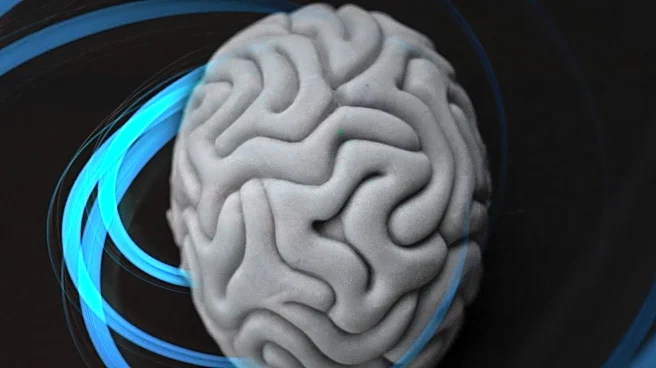What's Happening?
Research has identified prefrontal and parieto-occipital neural signatures associated with evidence accumulation and response to computerized Cognitive Behavioral Therapy (cCBT) in depression. The study involved participants undergoing a probabilistic reversal learning task, with fMRI scans revealing accumulator-like activity in the brain. The findings suggest that pre-treatment neural activity may predict cCBT response, offering insights into the neurocomputational mechanisms underlying decision-making and treatment efficacy.
Why It's Important?
Understanding the neural basis of treatment response in depression is crucial for developing personalized therapeutic strategies. The identification of specific brain regions linked to cCBT response could inform clinical practices, enabling targeted interventions that optimize treatment outcomes. This research highlights the potential for neuroimaging to guide mental health treatment, improving efficacy and reducing trial-and-error approaches.
What's Next?
Further studies could explore the application of these findings to other mental health conditions, potentially leading to new diagnostic tools and treatment protocols. Longitudinal research may investigate the stability of neural signatures over time and their relationship with clinical outcomes, providing deeper insights into the mechanisms of depression and recovery.
Beyond the Headlines
The study emphasizes the role of brain plasticity in mental health treatment, suggesting that interventions targeting specific neural pathways could enhance therapeutic efficacy. This approach could revolutionize mental health care, offering personalized solutions based on individual neurobiological profiles.









